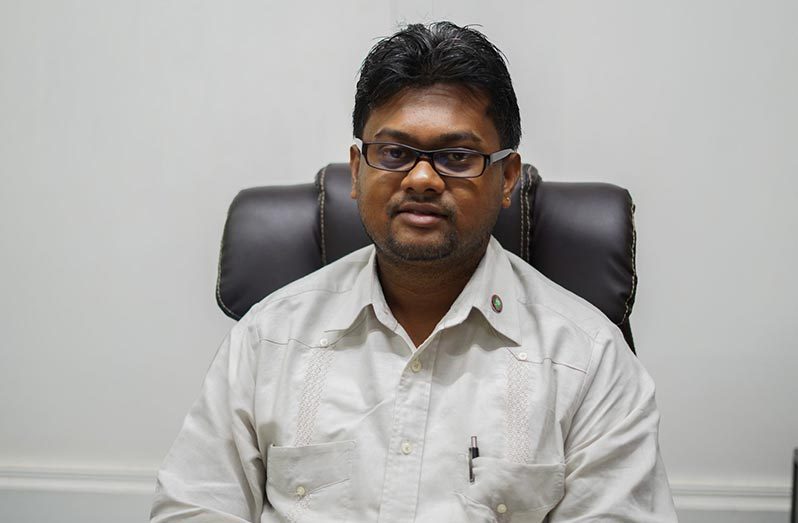— after staff tests positive for COVID-19
By Navendra Seoraj
SEVERAL municipal clinics have been closed by the Georgetown Mayor and City Council (M&CC) after an employee of one of the facilities would have tested positive for the Novel Coronavirus (COVID-19).
The council closed its maternal and child welfare clinics in Albouystown, Festival City, and along South Road because the employee, who was infected, was said to be in contact with several employees from the various clinics.
The employee was not identified, but Mayor of Georgetown, Ubraj Narine confirmed that the person would have contracted the disease and was in contact with several other employees.
“Yes one of the staff got it, but the staff was actually in contact with a lot of other staff of the health centres, so we had to put measures in place to close it down in order to do proper sanitisation and monitoring,” said Mayor Narine in an invited comment, on Wednesday.
Usually when a patient would have been in contact with other persons, authorities would conduct contract tracing to ensure that the line of transmission is traced and curtailed if possible. This process is conducted by health workers of the Ministry of Health.
The mayor said that persons, who were known contacts of the infected person, have already been isolated and tested by health authorities.
“All of the other staff will be tested, so after sanitising those health centres, we will look at re-opening by Tuesday… we hope to have the health centre running again with staff from the health ministry,” said Mayor Narine.
According to the World Health Organisation (WHO), COVID-19 is an infectious disease caused by a newly-discovered coronavirus. Most people, who fall sick with COVID-19, will experience mild to moderate symptoms and recover without special treatment. There are, however, vulnerable groups such as persons with underlying conditions and elderly patients, who may develop severe forms of the disease.
Guyana has so far recorded 1,093 cases of this disease, of which 378 were found in Region Four (Demerara-Mahaica) alone. Georgetown, which lies in the heart of Region Four, had been listed as a ‘COVID-19 hotspot” because of the high infection rate there.
RESERVATION
News Room had recently reported that Mayor Narine is not pleased with the measures in place by Central Government to curb the spread of COVID-19 as Region Four is seeing a steady increase in new cases.
Narine was critical of the 21:00 hrs curfew which was relaxed from 20:00hrs on August 15 and the approval for more businesses to re-open. He termed the recent gazetted order “a loose one” noting that “you’re giving the businesses a more kind of open-door policy to deal with the public [but] there should be more restrictions.”
“Moving the curfew from 8pm to 9pm… if you visit the city about 9, the city is still active and the city is still active 9:30pm…in the bus park and so…you will still see people out there,” the Georgetown Mayor told the News Room Tuesday.
The steady rise has caused panic in some cases, but there are persons who remain nonchalant and unbothered by the spread. Authorities, however, continue to adjust control measures in order to mitigate the spread of the disease.
Deputy Chief Medical Officer (DCMO), Dr. Karen Gordon-Boyle, is of the opinion that some measure of control can be placed on the rapid spread of the virus through contact tracing.
Dr. Boyle, during an interview with the Department of Public Information (DPI), explained that contact tracing is used by health departments to prevent the spread of infectious diseases.
She added that contact tracing involves identifying persons who would have come into contact with someone who tested positive for the virus.
But for the process to be successful, she said, persons who would have tested positive for the virus must be cooperative with health officials in detailing their movements, and who they would have been in contact with prior to testing positive for COVID-19.
She warned that if positive cases are not forthcoming with information, the lives and well-being of many others may be at risk.
“Anything that prevents you from identifying all contacts, communicating to them their risk and isolating those persons means you are going to be less effective in controlling the epidemic,” Dr. Boyle said.
She further explained that once the contacts have been identified, they are quarantined, and at the end of a 14-day (two-week) period, they are tested for the virus.
While the process may appear to be simple, Dr. Boyle noted that it is not without its challenges, as the fear and sheer anxiety surrounding the virus, as well as the nonchalant and dishonest attitude of many individuals have made it difficult for the relevant health officials to do their jobs effectively.



.jpg)










